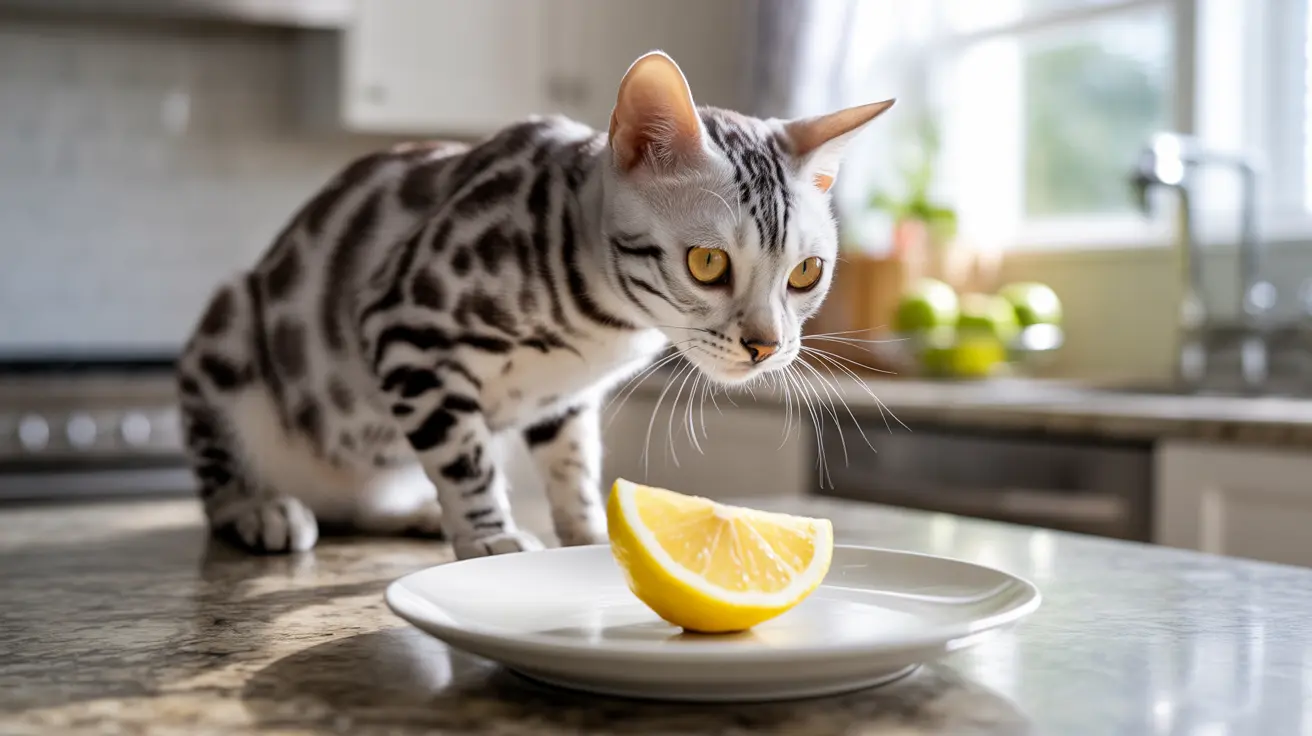If you're wondering whether cats can have lemon juice, the answer is a clear and definitive no. Lemon juice, along with all citrus products, is toxic to cats and can cause serious health problems. Understanding why these common household items are dangerous for your feline friend is crucial for keeping them safe and healthy.
In this comprehensive guide, we'll explore the dangers of lemon juice for cats, identify the toxic compounds involved, and explain what to do if your cat is exposed to citrus products.
Why Lemon Juice is Dangerous for Cats
Cats lack the necessary enzymes to process certain compounds found in lemons and other citrus fruits. The main toxic components include:
- Essential oils (limonene and linalool)
- Psoralens
- Citric acid
These compounds can cause severe reactions in cats, even in small amounts. While humans can safely consume lemon juice, cats' bodies are simply not designed to handle these substances.
Understanding Citrus Toxicity in Cats
When a cat is exposed to lemon juice or other citrus products, their body can react in several ways. The essential oils found in citrus fruits can be particularly problematic, as cats' livers cannot effectively metabolize these compounds.
Even the strong scent of lemons can cause discomfort for cats, which is why most felines naturally avoid citrus. This aversion is actually a protective instinct that helps keep them safe from potential toxins.
Signs of Lemon Poisoning in Cats
If your cat has been exposed to lemon juice, watch for these warning signs:
- Gastrointestinal issues (vomiting, diarrhea)
- Excessive drooling
- Weakness or lethargy
- Depression
- Skin irritation (if external contact occurs)
- Light sensitivity
- Tremors (in severe cases)
Preventing Citrus Exposure
To keep your cat safe from lemon juice and other citrus products:
- Store citrus fruits and juices in sealed containers
- Clean up spills immediately
- Avoid using citrus-based cleaning products
- Never use lemon-scented pet products on cats
- Keep citrus-flavored foods and drinks out of reach
What to Do If Your Cat Consumes Lemon Juice
If you suspect your cat has ingested lemon juice or any citrus product, take immediate action:
- Contact your veterinarian right away
- Monitor your cat's symptoms
- Do not induce vomiting unless directed by a professional
- Have the ASPCA Animal Poison Control number ready: (888) 426-4435
Safe Alternatives for Cats
Instead of offering potentially harmful human foods, stick to cat-safe treats and beverages:
- Fresh, clean water
- Cat milk (specially formulated for felines)
- Veterinarian-approved cat treats
- Commercial cat food appropriate for your pet's age and health status
Frequently Asked Questions
Can cats safely drink or consume lemon juice in small amounts?
No, cats cannot safely consume any amount of lemon juice. Even small quantities can cause adverse reactions and should be strictly avoided.
What are the symptoms of lemon or citrus poisoning in cats?
Symptoms include vomiting, diarrhea, excessive drooling, weakness, depression, skin irritation, and in severe cases, tremors or seizures.
Why are lemons and lemon essential oils toxic to cats?
Cats lack the liver enzymes necessary to process citrus compounds like limonene and linalool, making these substances toxic to their systems.
What should I do if my cat accidentally ingests lemon or lemon juice?
Contact your veterinarian immediately and monitor your cat for symptoms. Don't attempt home remedies without professional guidance.
Are lemon-scented cleaning products or shampoos safe to use around cats?
No, lemon-scented products can be harmful to cats. Use only pet-safe, unscented products specifically formulated for felines.
Remember, when it comes to cats and lemon juice, it's always better to err on the side of caution. Keep all citrus products away from your feline friend and stick to veterinarian-approved foods and treats to ensure their safety and well-being.






